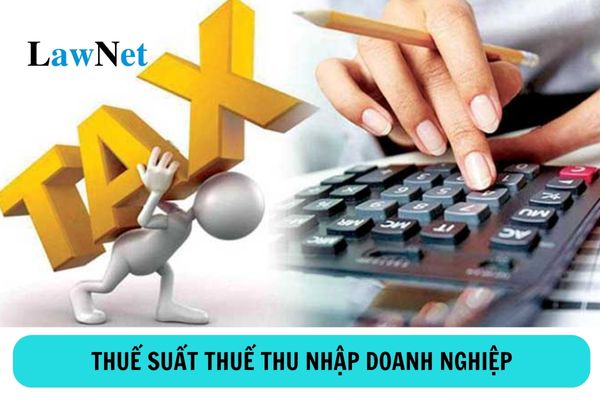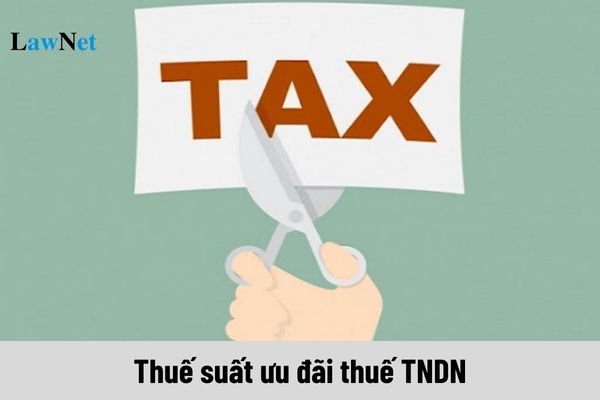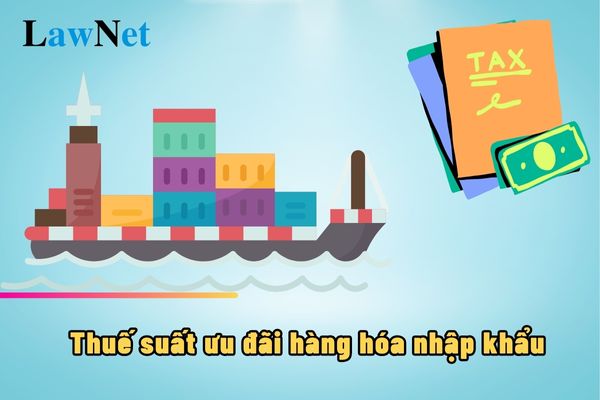What incomes are subject to the 10% preferential CIT rate within 15 years in Vietnam?
What incomes are subject to the 10% preferential CIT rate within 15 years in Vietnam?
Under Article 13 of the Law on CIT 2008 amended and supplemented by Clause 7 Article 1 of the Law on Amending the Law on CIT 2013 supplemented by Clause 5 Article 1 of the Law on Amending Various Tax Laws 2014, the 10% preferential CIT rate in some specific cases is as follows:
The 10% preferential CIT rate within 15 years applies to:
- Income of enterprises from the implementation of new investment projects in areas with especially difficult socio-economic conditions, economic zones, and high-tech zones;
- Income of enterprises from the implementation of new investment projects, including:
+ Scientific research and technological development;
+ Application of high technology on the list of prioritized technologies for development investment according to the Law on High Technology 2008; high-tech incubation, high-tech enterprise incubation; investment in high-risk ventures to develop high technologies on the prioritized list as prescribed by the Law on High Technology 2008; investment in constructing and commercially operating high-tech incubation facilities, high-tech enterprise incubation; development of particularly important state infrastructure as prescribed by law; software product manufacturing; production of composite materials, lightweight building materials, rare materials; production of renewable energy, clean energy, energy from waste destruction; biotechnology development; environmental protection;
- Income of high-tech enterprises, agricultural enterprises applying high technologies according to the Law on High Technology 2008;
- Income of enterprises from implementing new investment projects in production sectors (excluding projects producing goods subject to special consumption tax, mineral exploitation projects) meeting one of the following criteria:
+ The project has an investment capital scale of at least six thousand billion dong, disbursed within three years from the date of issuance of the Investment Certificate, and total annual revenue reaches at least ten thousand billion dong at the latest three years from the year revenue is generated;
+ The project has an investment capital scale of at least six thousand billion dong, disbursed within three years from the issuance of the Investment Certificate and employs over three thousand workers.
- Income of enterprises from implementing new investment projects producing products on the List of supporting industrial products prioritized for development that meet one of the following criteria:
+ Supporting industrial products for high technologies as stipulated by the Law on High Technology 2008;
+ Supporting industrial products for manufacturing products in the following sectors: textiles - garments, leather - footwear, electronics - information technology, automobile production and assembly, mechanical manufacturing, which by January 1, 2015, have not been produced domestically or produced but must meet the technical standards of the European Union (EU) or equivalent.
- Income of enterprises from implementing investment projects in the production sector, excluding projects producing goods subject to special consumption tax and mineral exploitation projects, with a minimum investment capital scale of twelve thousand billion dong, using technology appraised according to the Law on High Technology 2008, Law on Science and Technology 2008, and disbursed within 5 years from the date of investment approval according to the investment law regulations.

What incomes are subject to the 10% preferential CIT rate within 15 years in Vietnam? (Image from the Internet)
What incomes are subject to the 10% preferential CIT rate in Vietnam?
According to Clause 2, Article 13 of the Law on CIT 2008 amended and supplemented by Clause 7 Article 1 of the Law on Amending the Law on CIT 2013 amended by Clause 6 Article 1 of the Law on Amending Various Tax Laws 2014, the 10% preferential CIT rate applies to the following incomes:
- Income of enterprises from socialization activities in the fields of education - training, vocational training, healthcare, culture, sports, and environment;
- Income of enterprises from implementing investment - business projects of social housing for sale, lease, or lease purchase to subjects stipulated in Article 53 of the Housing Law 2023;
- Income of press agencies from print newspaper activities, including advertisements on printed newspapers according to the Press Law 2016; income of publishing agencies from publishing activities according to the Publishing Law 2012;
- Income of enterprises from: planting, caring for, and protecting forests; cultivating and processing agricultural and aquatic products in areas with difficult socio-economic conditions; cultivating forest products in areas with difficult socio-economic conditions; producing, breeding, and propagating plant varieties and animal breeds; producing, exploiting, and refining salt, excluding the salt production stipulated in Clause 1, Article 4 of the Law on CIT 2008; investment in post-harvest preservation of agricultural products, preservation of agricultural products, aquatic products, and food;
- Income of cooperatives operating in agriculture, forestry, fishery, and salt production in areas without difficult socio-economic conditions or particularly difficult socio-economic conditions, excluding the income of cooperatives stipulated in Clause 1, Article 4 of the Law on CIT 2008.
What incomes are exempt from CIT in Vietnam?
According to Article 4 of the Law on CIT 2008 amended and supplemented by Clause 3 Article 1 of the Law on Amending the Law on CIT 2013 and Clause 2 Article 1 of the Law on Amending Various Tax Laws 2014, the tax-exempt incomes include:
- Income from planting, breeding, and processing agricultural products, aquatic products, salt production of cooperatives; income of cooperatives operating in agriculture, forestry, fishery, and salt production in areas with difficult socio-economic conditions or particularly difficult socio-economic conditions; income of enterprises from planting, breeding, and processing agricultural products, aquatic products in areas with particularly difficult socio-economic conditions; income from fishing activities.
- Income from providing direct technical services for agriculture.
- Income from implementing scientific research and technological development contracts, products in the trial production period, products made from new technology for the first time applied in Vietnam.
- Income from producing and trading goods and services of enterprises with at least 30% of the average annual labor being disabled, rehabilitated persons, people infected with the HIV/AIDS virus, with an annual average workforce of twenty or more people, excluding enterprises operating in the financial sector and real estate business.
- Income from vocational training activities dedicated to ethnic minorities, disabled people, children in special difficult circumstances, and people involved in social evils.
- Income distributed from capital contribution, joint ventures, and associations with domestic enterprises after having paid CIT according to the Law on CIT 2008.
- Financial aid received for use in educational, scientific research, cultural, artistic, charitable, humanitarian, and other social activities in Vietnam.
- Income from transferring emission reduction certificates (CERs) of enterprises granted emission reduction certificates.
- Income from performing state-assigned tasks of the Vietnam Development Bank in development investment credit, export credit activities; income from credit activities for the poor and other policy subjects of the Vietnam Bank for Social Policies; income of state financial funds and other state funds operating on a non-profit basis as prescribed by law; income of organizations with 100% state-owned charter capital established by the Government of Vietnam to handle bad debts from Vietnamese credit institutions.
- Undistracted income of establishments engaged in socialization in education - training, healthcare, and other socialized fields used for reinvestment to develop such establishments according to specialized laws on education - training, healthcare, and other socialized fields; the undistracted income forming non-divisible assets of cooperatives established and operating according to the Cooperative Law 2023.
- Income from technology transfer on the list of prioritized sectors for transfer to organizations and individuals in areas with particularly difficult socio-economic conditions.



- What is the currency unit used in tax accounting in Vietnam?
- Which enterprise groups will the General Department of Taxation of Vietnam focus on inspecting and auditing in 2025?
- What are guidelines on online submission of unemployment benefits application in Vietnam in 2025? Are unemployment benefits subject to personal income tax?
- How long can the tax audit period on taxpayers’ premises in Vietnam be extended for complex matters?
- From January 1, 2025, which entities are exempted from ferry service fees from the state budget in Vietnam?
- How to determine VAT applicable to ships sold to foreign organizations in Vietnam?
- What is the maximum penalty for late submission of tax declaration dossiers in Vietnam?
- What is the duty-free allowance on gifts given for humanitarian in Vietnam?
- Are votive papers subject to excise tax up to 70% in Vietnam?
- Shall enterprises use invoices during suspension of operations in Vietnam?

